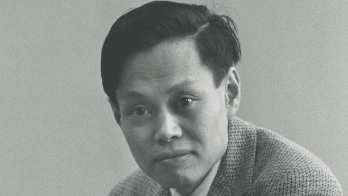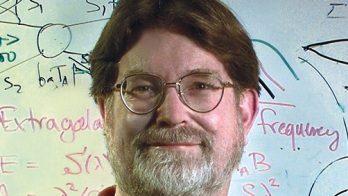Former CERN electronics engineer Matteo Di Cosmo reflects on the difficult decision to leave CERN and pursue his passion for electronic music.

When Matteo Di Cosmo was 16 and listening to German electronic band Kraftwerk, he decided that he wanted to build his own synthesiser. “I fell in love with a track called ‘Radioactivity’, which starts with morse code of the word ‘radioactivity’, and I decided I wanted to build equipment to produce these sounds,” he explains. He had already built his own keyboards, but taking it to the next level pushed him to do a bachelor’s in electronics engineering at the University of Turin. Originally from Puglia in southern Italy, he went on to obtain two master’s degrees, one in mechatronics and one in electronics engineering.
Inspired by CERN
It was during this time that Matteo visited CERN. The experience left him with a strong desire to work there but he felt it was an unattainable ambition. Nevertheless, in 2011 he applied for a position through the “Volontaires Internationaux” programme and was successful. He joined the physics department in 2012 as a fellow, testing commercial equipment used in the backend electronics for CERN experiments. A year later he obtained a staff contract with increased responsibilities, including managing a team of around five and hiring people. Making use of CERN’s internal mobility programme, he then joined the electrical power converter group in the technology department and spent six years working with a multicultural team of 15 people. “CERN is the greatest example of a united Europe, as the incarnation of teamwork no matter what language or nationality,” he says, adding that his experience has undoubtedly affected his personality. “It left me with the sensation that I can no longer be in an environment that is not diverse.”
Finally, in 2018, the knowledge that Matteo had acquired at CERN enabled him to realise his teenage ambition, and he built his own synthesiser: the “tiny synth”, based on field programmable gate arrays (FPGAs). At the time, there were no other products on the market using this technology. Subsequently, he was contacted by the CEO of the organisation he works for today, who was looking for an engineer. Matteo was not ready to leave CERN so he asked the human resources department if he could work as a contractor alongside his job. The request was accepted as there was no conflict of interest.
Invest time in acquiring the skills relevant for your sector, but don’t forget to also spend some time thinking about where you are going
Four years into his dual role, however, Matteo began to reconsider his position. He wanted a job more centred on managing people, in the private sector and that was more focused on profitability. “I was very confident in my work, and I also appreciated my colleagues, but at the same time I think I had reached a ‘plateau’ of knowledge, so I felt I was not able to move forward.” Initially, he struggled with the decision whether to leave CERN. He turned to the CERN Alumni Network to find members who had held indefinite contracts at CERN but chose to pursue a career elsewhere. He met with three such people who took the time to listen and share their experiences, but it was a conversation with a colleague that brought him to the realisation that he needed a change. “One of my best friends asked me ‘are you happy?’ and I was not able to answer.”
Matteo left CERN in 2020 after eight enjoyable years, forever grateful of what it taught him. He is now based in Bari, Italy, where he works with people from around the world as an innovation leader at Music Tribe, delivering audio products for DJs and music producers.
As for his advice to others: “Invest time in acquiring the necessary skills relevant for your sector, but don’t forget to also spend some time thinking about where you are going. I was working all the time, developing electronics. But I forgot to ask myself if I am in the right place doing the right thing. We should all spend some time not only working, but on introspection.”







